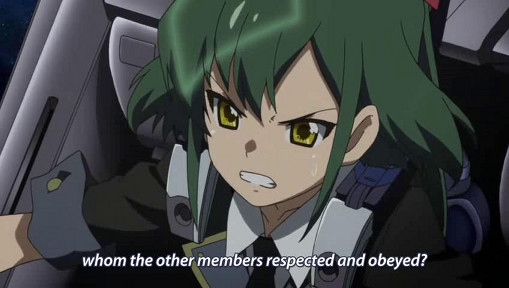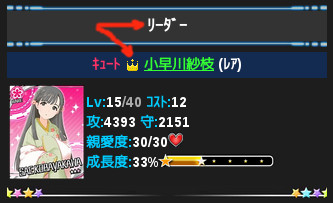When I watched the famous "Danketsu" video[1] years ago, it was notable how much importance the members of 765PRO cast placed on the Leader, even if they ultimately decided against having one. So I was quite ready for the Takamina story in AKB0048.

The double-zero setting embraces the concept with abandon. In fact, it features two leaders, one of members and one of understudies, and their interplay is a vehicle for much character investigation. The story plainly asks, what is a leader? I do not remember what she said originally, but the subtitled Takamina mentions how the iconic leader has "more passion and leadership than anyone else", and she is "whom the other members respect and obey". Perhaps her team is large enough for such a person being a necessary buffer between the management and performers, unlike the original nine of iM@S games.
In the TV series, too, there was never a designated leader. Haruka, Miki, and Chihaya were the triumvirate that quietly ruled over the lesser idols, and sometimes over their formal superiors, e.g. Ricchan. Nonetheless, none of the three was better than the rest, and nobody was "respected and obeyed"[2]. I suspect that it was a creative decision intended to permit fans to latch freely on their favourite archetype. The example of AKB0048 shows that it wasn't necessarily the only decision.

Still, Idolm@ster continues to flirt with the concept. In Cinderella Girls, position of Leader is formalized, as she offers her bonus to the front group. Moreover, "attacking" and "defending" groups have independent membership, yet Leader must be one. The little royal crown icon is most precious.
It tells us that the spirit of Leader is always present, even if idols reject her explicitly.
[1] The title, "団結", is usually translated as "Unity" or "Solidarity".
[2] The inverse, however, was asymmetric: you cannot tell who leader was, but you can tell who was not. As they say in "Danketsu": "Shut up, Yukiho!" ("雪歩だまってて!").
UPDATE: Nico and leadership at Bros Before Shows.